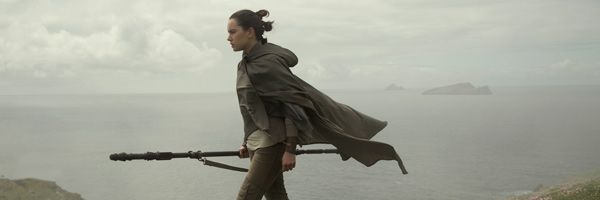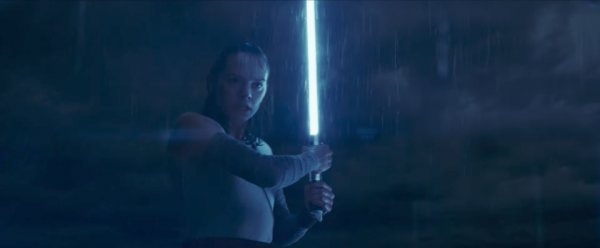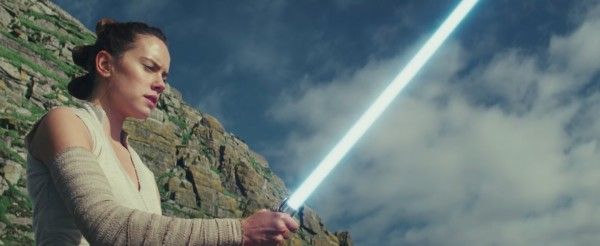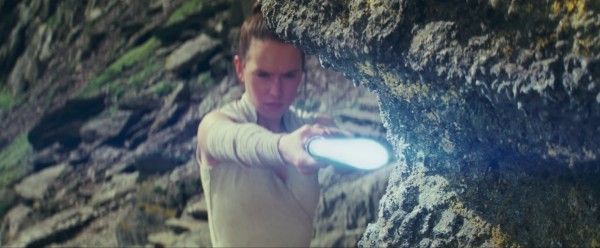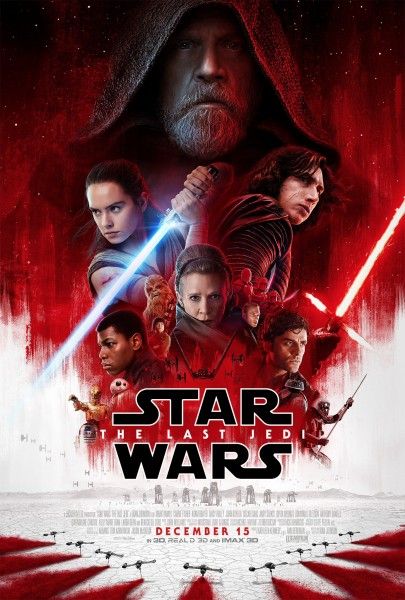This article contains spoilers for Star Wars: The Last Jedi.
J.J. Abrams, a man who loves the mystery box like no other, set up a pretty big mystery in Star Wars: The Force Awakens with the question of Rey’s parents. Rey, believing they had abandoned her on Jakku, struggled to accept the reality that they were never coming back for her, and audiences struggled to discover who could have spawned such a powerful Force user. The movie was littered with possibilities. At point, Rey hears the voice of Obi-wan Kenobi saying, “These are the first steps,” so was she’s Kenobi daughter or granddaughter? When Rey returns to the Resistance base after Han’s death, she gets a hug from Leia. Could she be Han and Leia’s lost daughter?
Star Wars: The Last Jedi provided a very different answer. Even when Rey goes on a bit of a vision quest to find the answer to her parentage, the only person who appears is herself. Finally, in a confrontation with Kylo Ren, he tells her she knows the answer and she confesses that they were nobodies. He elaborates that they were junk traders who sold her off for drinking money and now lay dead in a pauper’s grave on Jakku. Rey, as a way of coping with the cruelty inflicted on her by the people who were supposed to love her most, imagined that her parents had merely left her and that they were out in the galaxy somewhere. The harder truth is that they were nobodies, and if they were nobodies, what does that make Rey?
For some, this conclusion will be so underwhelming that they’ll probably spend the next two years hoping that Abrams reverses course in Episode IX and says that Rey’s parents were actually important characters whose names we’ll recognize. But that would be a mistake, and it would disrupt the thematic core of The Last Jedi, which is that greatness can come from anywhere. A New Hope carries that same attitude—a farm boy from a desert planet ends up blowing up the Death Star and saving the Rebellion. It wasn’t until later movies that Luke Skywalker was part of a grand legacy, his father Darth Vader, who was previously Anakin Skywalker, a key figure in wiping out the Jedi Order and establishing the Empire.
The Last Jedi disposes of the mythic structure and in an odd way brings the series back to its roots by not only having Rey be nobody, but by celebrating “nobodies” in general. The film ends with an unnamed slave child casually use the Force to grab a broom, and then look up at the stars, broom gripped like a lightsaber. The message director Rian Johnson is sending isn’t that this particular child is special, but that there are special people across the galaxy from the unlikeliest of places, and those special people, like Rey, will be key in helping the Resistance defeat the First Order.
Some may reject this egalitarian message because it goes against the mythic tropes they demand from Star Wars, but personally I find it a far more rewarding and uplifting message. Chosen One stories are played out, and I’m more excited to see characters like Rey who make their own destiny rather than having the good fortune to be the offspring of recognizable characters. Rey’s parents may have been nobodies, but she’s somebody, and that’s what’s important.
For more on Star Wars: The Last Jedi, click on the links below:
- ‘Star Wars: The Last Jedi’: What the Ending Means for the Trilogy’s Conclusion
- Watch the ‘Star Wars: The Last Jedi’ Cast Give Their Theories on Supreme Leader Snoke
- ‘Star Wars: The Last Jedi’ Review: The Force Is Strong with This One
- Watch: The ‘Star Wars: The Last Jedi’ Cast Answers Your Most-Searched Questions
- New ‘Star Wars: The Last Jedi’ Featurette Reveals How the New Planets Were Created

